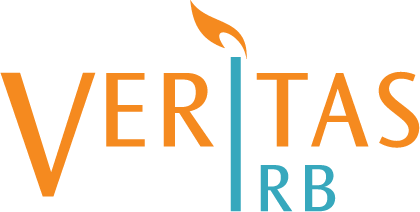Last month, five men in Nova Scotia risked their own lives to help a severely injured woman trapped in a burning vehicle that was wedged in some trees off the shoulder of the road. The car could have exploded at any time, but those men carried on and managed to move the woman out of her SUV and away from an imminent explosion. We do not know the names of these men and the local paper strongly urges those who know them to nominate these heroes for the Nova Scotia medal of bravery.
Like these men, we never know the names of the research participants who are willing to put aside concerns for their own well being for the sake of improving the health of others.
Society has traditionally provided protection and/or compensation to those we consider heroes: individuals who provide assistance to those who are injured, ill, or in some form of peril. Protection and financial compensation is offered to war veterans, police force, firefighters, and healthcare workers. Protection from liability for damages and, in some cases, compensation is also offered to the Good Samaritans, the everyday heroes, who risk their own well being to rescue a person in a life-threatening situation. What about the “medical heroes” that consent to participate in research and for which we owe a great part of the discoveries made through clinical research?
There are no governmental programs that offer or require compensation for research-related injury
Current laws in the U.S. and Canada do not require that research participants who suffer from research-related injury receive any form of compensation. For example, research participants do not meet the definition of a “rescuer” under the Quebec Act to Promote Good Citizenship where Good Samaritans are offered financial compensation for both personal and material injuries. There are also no compensation schemes for research participation injuries equivalent to the ones found in some U.S. States and Canadian provinces for injuries suffered by volunteer firefighters or workers who conduct Good Samaritan actions in the workplace.
This means that research participants who are injured as part of their participation in a clinical trial do not immediately benefit from any financial support. Research participants will therefore have to rely on their personal health insurance or provincial health care plan to assume some of the costs of their medical treatment.
Voluntary compensation for research-related injuries does exist
Some research institutions, research agencies and pharmaceutical companies provide compensation for research-related injuries on a volunteer basis. The modalities by which these voluntary compensation programs are offered to research participants vary significantly. While some programs will offer care free of charge and even cover out-of-pocket expenses, others will only offer coverage for care not covered by the participant’s personal health insurance or provincial health care plan. None of the plans surveyed in Canada and the U.S., however, offer any financial compensation for lost wages or long-term disability. Therefore, research participants’ only recourse in order to seek compensation for research-related injuries would be through civil litigation.
Civil litigation as a compensation scheme
Civil litigation is, to say the least, a challenging compensation scheme for research-related injuries since research participants bear the entire burden to prove that :
-
The researcher or sponsor had a duty towards them;
-
If such duty exists, it was breached by the researcher or sponsor;
-
The breach of duty caused the injury;
-
There are no other reasons to justify the breach.
The burden to prove research-related injuries is enormous due to the inherent nature of clinical research:
-
Research procedures are generally non-therapeutic. They are primarily conducted for the advancement of science and not out of a “duty of care” to the research participant;
-
Research carries a proportion of unanticipated risks;
-
Responsibility of the research endeavour is often shared between the sponsor of research, the research institution and the researcher.
What does the future hold for the compensation of “medical heroes”?
A consensus was reached among countries involved in research, except in North America, that research-related injury compensation must be mandatory. The countries of the European Union, as well as several countries in South America, Asia and Africa, have adopted various approaches for providing care and compensation to research participant who suffered injuries as a result of research.
The latest revision of the Declaration of Helsinki, adopted in October 2013, requires that “appropriate compensation and treatment for subjects who are harmed as a result of participating in research must be ensured”. The ICH-GCP Guidelines as adopted by Health Canada and later integrated in the Food and Drug Regulations indicate that clinical trials need to be conducted in “accordance with the ethical principles that have their origin in he Declaration of Helsinki”. This may open the door to the development of research-related injury compensation approaches in Canada at both an institutional and governmental level.
In the U.S., the Presidential Commission for the Study of Bioethical Issues recommended in 2011 that the Department of Health and Human Services (DHHS) studies the issue of research-related injuries in order to determine if there is a “need for a national system of compensation or treatment for research-related injuries.” It will be interesting to see what the conclusions of the DHHS will be.
Points to Remember
-
There is no requirement or government-based program in Canada or the U.S. for research participants to receive compensation for research-related injuries;
-
There is an ethical duty for sponsors of research, institutions and researchers to provide appropriate compensation for the treatment of research participants who suffer research-related injuries;
-
It is unclear whether sponsors of research, institutions and researchers have a legal obligation to provide compensation for the treatment of research participants who suffer research-related injuries;
-
As part of the informed consent process, researchers must ensure that research participants are fully informed whether compensation will be available in case of a research-related injury;
-
As part of the informed consent process, researchers must not waive or appear to waive the rights of the research participants or release the sponsor, the institution or the researcher from liability from negligence.
Reference:
For more information on research-related injury compensation see the U.S. Presidential Commission for the Study of Bioethical Issues, Compensation: Background, September 22, 2014


